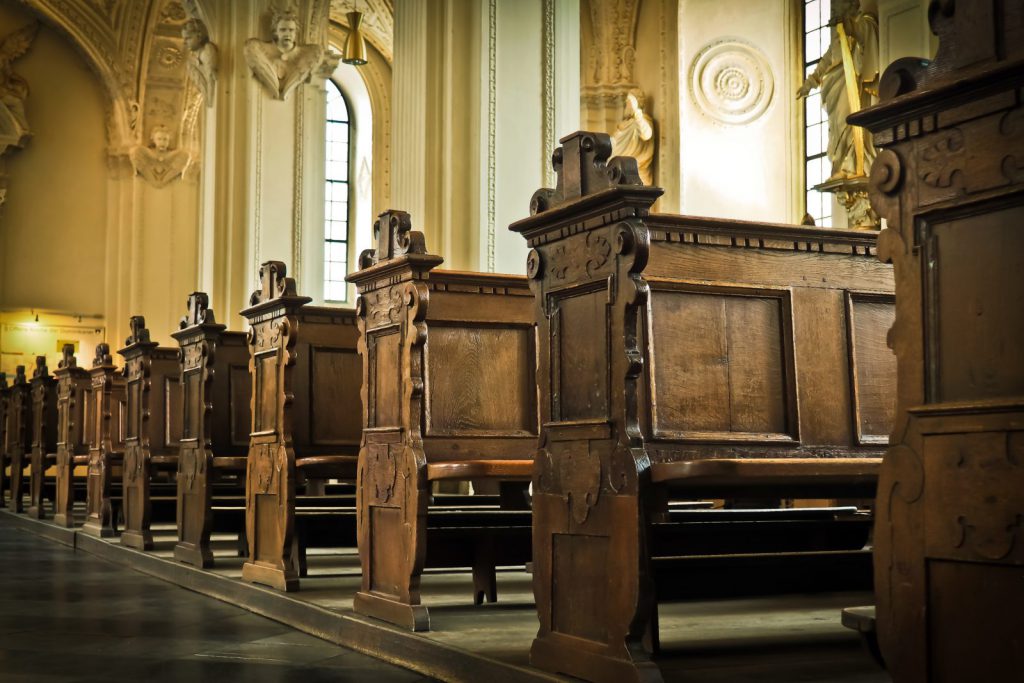
Published August 30, 2017
George Weigel's weekly column The Catholic Difference
Some biblical scholars consider the Book of Deuteronomy to be a collection of sermons: catechetical homilies on the great theme of the Exodus and the fulfillment of that epic adventure in God’s gifts of the Law and the land to the people of Israel. Throughout the book, Israel is told, over and over again, “Remember…” (or, more sharply, “Take heed, lest you forget…”). And what is Israel to remember? What does Israel dare not forget? Israel must remember God’s mighty deeds in leading his people out of that “house of bondage,” Egypt. Israel must remember that Pharaoh’s army was crushed not by Israel’s power, but by God’s. Israel must remember the manna and the quail in the desert, food from heaven. Israel must remember the gift of the Law, which helps Israel avoid falling back into the bad habits of slaves. And Israel must remember the gift of the land, which, by God’s bounty, gave her a home where she might prosper.
In Deuteronomy, Gianfranco Ravasi remarks, “to remember” is synonymous with “to believe”: For to remember God’s gracious action in history is to believe that God alone is God, and God alone is to be worshipped. Thus the admonition “Remember…” is a caution against idolatry. In the Old Testament, “idolatry” often means worshipping the false gods of the various peoples Israel encounters; in Deuteronomy, “idolatry” is the false god of self-sufficiency. Settled in the land, Israel may be tempted by prosperity to fall back into its national “original sin,” symbolized by the darkest moment of the Exodus epic, the incident of the golden calf. For what was that all about? It was about the worship of a domesticated God whom Israel can fashion into an image and see, and thus control.
Self-sufficiency—the forgetting of our dependence on the Lord and on the Lord alone—is a perennial temptation for all those who share in the spiritual heritage of Israel. In this twenty-first century, we are no less tempted to domesticate God, and thus to sink into a shallow religious indifference or insouciance, than were our biblical ancestors. In his recent, striking pastoral letter, “Unleash the Gospel,” Archbishop Allen Vigneron of Detroit reflects on this in discussing the roots of the contemporary crisis of faith.
Two factors creating today’s crisis of faith are familiar to most of us: “scientific fundamentalism,” which asserts that the only path to truth is through the empirical scientific method and the natural sciences, and “secular messianism,” which imagines the world to be perfectible by human agency alone. Archbishop Vigneron identified a third factor impeding or corroding faith today, “moralistic therapeutic deism.” He writes:
This term was famously coined by two sociologists to describe the amorphous set of religious beliefs to which many American young people subscribe. This belief system is moralistic in that it emphasizes moral behavior, vaguely defined as being nice, kind, pleasant, respectful, responsible, and so on. It is therapeutic in that it envisions God as on call to take care of problems that arise in our lives, but not otherwise interested in us nor holding us accountable for our choices. It is deistic in that it views God as having created the world but not personally involved in it. Such views fall short of the Christian understanding of God, who does hold us accountable, who gave his Son for us to save us from the devastating consequences of sin, and who desires to be deeply involved in our lives.
The Church of Nice is not the Church of Jesus Christ, who came “to cast fire upon the earth” and longed to see it blaze up [Luke 12.49]. Yes, the Church of Jesus Christ is the Church of the merciful father, who restores to the prodigal son the squandered dignity of his sonship. But the condition for the possibility of the son’s receiving the father’s forgiveness is the son’s recognition of his need for forgiveness—the son’s recognition that he had been reduced to foraging for swine’s fodder by his self-indulgent self-sufficiency.
There are signs all around us of Christian communities domesticating God by trimming their doctrinal and moral sails to the prevailing mores of the postmodern West. It is a temptation against which the Catholic Church, and especially its ordained leaders, should be constantly vigilant.
George Weigel is Distinguished Senior Fellow of Washington, D.C.’s Ethics and Public Policy Center, where he holds the William E. Simon Chair in Catholic Studies.











